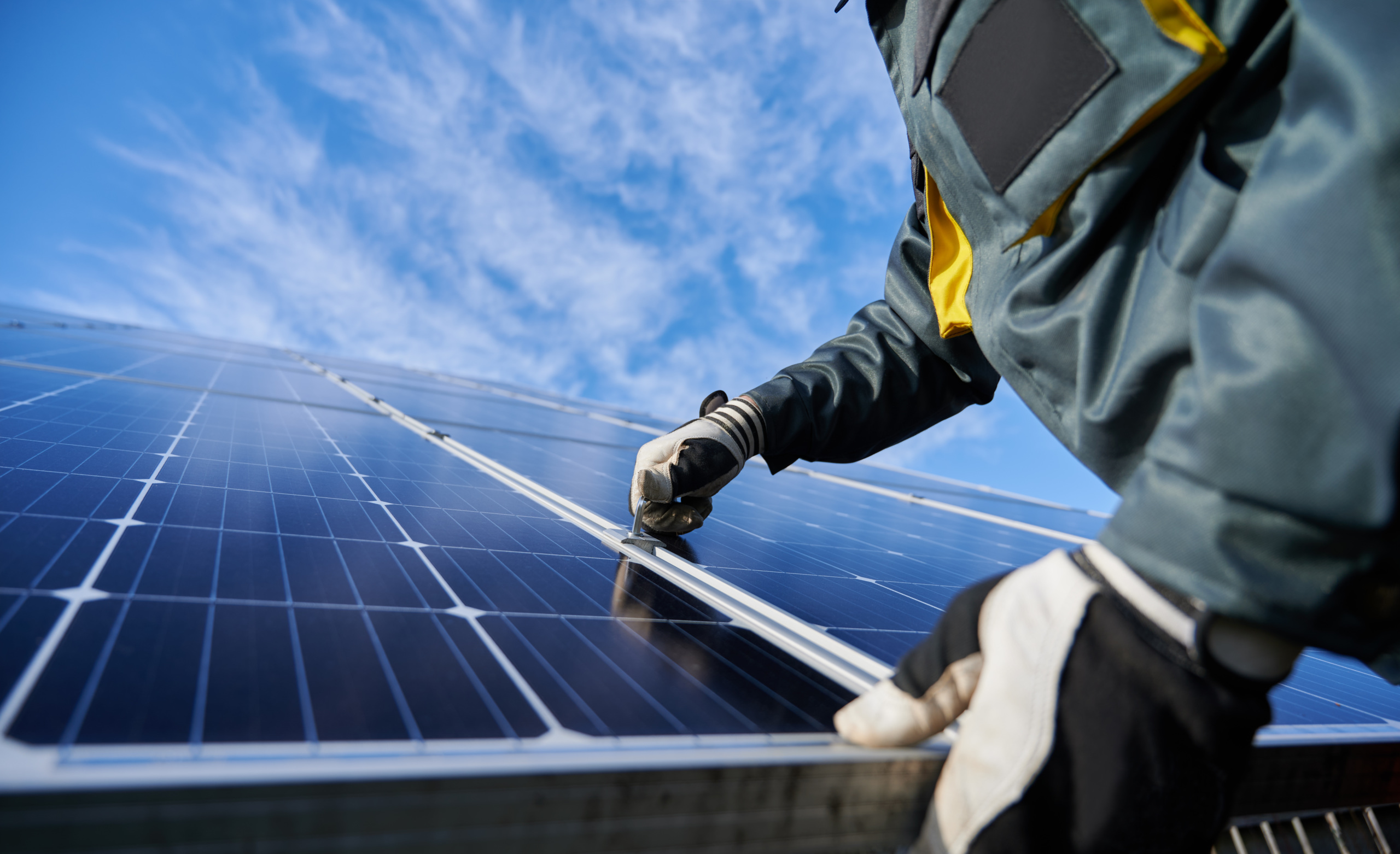
Tell your state legislators to support rooftop solar
We need California's leaders to keep rooftop solar growing.
Efforts to upgrade the electric grid, hold polluters accountable, go solar, and cut plastic pollution pass first legislative hurdles
Several key environmental bills passed through their respective policy committees this week in the California state legislature, bolstering efforts to unlock the electric grid, hold polluters accountable for global warming pollution and for the health risks of living near oil and gas wells, and reduce plastic pollution from single-use plastic bags.
A package of bills passed their committees on Wednesday to “unlock the grid” by boosting the capacity of California’s existing power lines and grid infrastructure. The three bills could help alleviate ever-rising energy costs by increasing access to cleaner, cheaper power with emerging technologies such as grid-enhancing technologies and advanced reconductoring. The Grid Enhancement and Modernization Act SB 1006 (Padilla), AB 3246 (Garcia), and AB 2779 (Petrie-Norris) passed their respective committees with no opposition.
“SB 1006, AB 3246, and AB 2779 are the ideal clean energy and reliability package deal that can quickly bring renewable power onto the grid while we transition away from fossil fuels,” said Dan Jacobson, senior advisor for Environment California. “These policies are low hanging fruit solutions to California’s energy affordability problems that also advance our clean energy goals. It’s a no-brainer.”
Three important bills to hold oil and gas companies accountable for their pollution also passed through their respective committees. SB 1497 (Menjivar) passed, which would assess the cost of climate damages by the state’s largest polluters and require them to pay their fair share for the damages they have caused California and its climate.
AB 3155 (Friedman) passed, which would make polluters pay for the illnesses they cause to residents living nearby toxic oil and wells.
SJR 12 (Min) also passed, which would urge the President of the United States and the United States Congress to modify bankruptcy rules to ensure that oil and gas companies cannot avoid their obligation to plug and clean up their wells in the event they go bankrupt.
AB 2528 (Arambula) passed in committee, and would allow farmland owners to cancel their Williamson Act contracts in order to facilitate faster siting of renewable energy infrastructure like solar panels on water constrained land, providing relief to landowners and local communities as well as catalyzing our state’s transition to clean energy.
SB 1053 (Blakespear) passed in committee, which would ban single-use plastic bags in grocery stores to help combat the state’s persistent plastic pollution problem.
Many more environmental bills will be considered in state legislative policy committees next week. Here are some of the main bills to keep your eye on:
AB 2256 (Friedman) would get rooftop solar back on track in California by accounting for all of its environmental and societal benefits, and its appropriate costs, when considering how to compensate solar panel owners for the energy they supply to the grid.
SB 1374 (Becker) would promote rooftop solar on buildings with multiple electric meters like schools, apartment buildings, farms and businesses by restoring the right to self-consumption of solar energy generated on-site.
SB 1305 (Stern) would assess the projected capacity and set procurement targets to drive the growth of virtual power plants (VPPs). VPPs are collections of distributed energy resources like smart appliances and devices in homes that can be aggregated to reliably reduce, shift, and deliver energy to the grid.
SB 1148 (Blakespear) would enable more solar microgrids on multi-family housing and community hubs, promoting a more resilient, affordable and reliable power grid.
AB 2083 (Berman), the Industrial Manufacturing Modernization Act, would direct the California Energy Commission to develop a plan to move the industrial manufacturing sector to zero emissions, reducing global warming pollution and air pollution from these facilities.
AB 2537 (Addis) would establish the Offshore Wind Community Capacity Building Fund to provide grants to local communities, tribes and nonprofits to engage in the process of offshore wind energy development, ensuring a more thoughtful process that engages more stakeholders to achieve our offshore wind goals.
SB 1420 (Caballero) would allow hydrogen energy produced from biomass to be eligible for streamlining benefits under the California Environmental Quality Act (CEQA). This would encourage dirty hydrogen production because biomass causes harmful pollution that damages California’s communities and its climate. Environment California OPPOSES SB 1420.
We need California's leaders to keep rooftop solar growing.
Send a message
